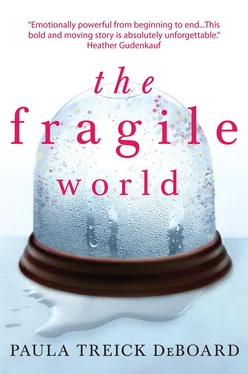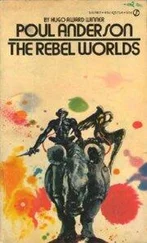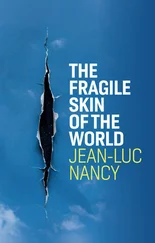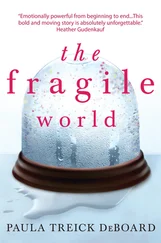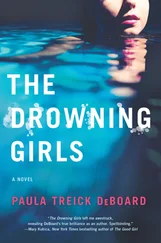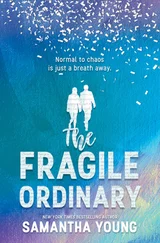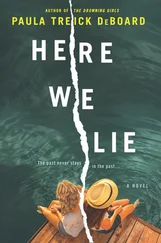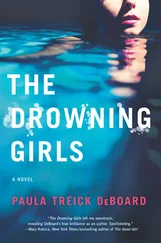The scheduled two-hour layover in Chicago grew to four hours, thanks to a weather delay. I watched as a cargo train wobbled by in the gray slanting rain, and uniformed personnel hoisted luggage indiscriminately into the hold. I strained, trying to spot my bag, which was black and therefore indistinguishable from dozens of other black bags. I hadn’t been to Chicago in close to thirty years, but the airport version of the city wasn’t one I would have recognized, anyway— steel-beamed ceilings, black-and-white checked floor tiles, deep-dish pizza, a preponderance of Cubs and Bears paraphernalia. The Chicago of my childhood had been my father, the cramped house with the nicotine-stained walls, the accordion closet door that had been thin protection against his rages.
Daniel’s death had brought my father back to me as a real person, rather than an abstract part of my past, buried alive in a time I rarely revisited. I hadn’t called him twenty years ago, when Kathleen was pregnant, and I hadn’t called nineteen years ago when Daniel was born, or seven years later when Olivia came along. Why ruin our happiness with his condescension? Later, when Daniel performed at Carnegie Hall, when Oberlin called with a full-ride scholarship offer, I’d wanted to rub his face in it: Look what my son has done. Look how well I’ve done, away from you all these years. But there had been the promise to Kathleen, and I’d never picked up the phone.
I was tempted to call him now, to hurt him with Daniel’s loss. Impossible idea—my father couldn’t begin to feel the loss of the grandson he’d never known. It was yet another defeat for me—even my effort to deprive him of his grandchildren would spare my father pain, in the end. Escaping to the bathroom, I drove my fist once, hard, into the metal door.
It was dark by the time I checked into the Oberlin Inn, the only hotel in town. It might have been late in Ohio, but it was only seven o’clock Sacramento time, too early for sleep. I flicked idly through the channels, then grabbed my coat. On the sidewalk in front of the hotel, students passed in hurried clusters, their heads covered. I crossed North Main Street and circled Tappan Square, ending up before Oberlin’s monument to the Underground Railroad, a set of railroad tracks rising to the sky.
Daniel had first mentioned Oberlin at the beginning of his junior year, when college seemed impossibly distant. “It’s famous for its music conservatory,” he had gushed, producing one glossy brochure after another. That fall it had been Oberlin this, Oberlin that. In the spring he’d flown out for a college visit, and then there was the admissions process, the gathering of transcripts and letters of recommendation, the seventeen drafts of Daniel’s personal statement. I’d driven him to his audition in San Francisco and paced anxiously outside the conservatory. During the hour-and-a-half drive to his audition he’d been quietly nervous; on the return drive, he was exuberant. “I nailed it,” he’d said over and over, reliving every second for me. Finally, there was the acceptance letter, a scholarship offer and dozens of phone calls about housing. Oberlin had seemed to me to be larger than life—it was all of life, as far as Daniel was concerned.
It had been somewhat surprising to discover that the town of Oberlin was tiny. Kathleen and I, on our one visit, had rented a car and marked out the parameters of the town in just a few circles. The main streets bisected at the college, which loomed large and official—museum, concert halls, the conservatory with more than two hundred grand pianos, Daniel had informed us—next to the rest of the town, which had relatively few amenities. We had taken Daniel out for Chinese at a restaurant a block from campus. In our spin around town, he pointed out the bowling alley, an archaic-looking video rental store, the self-serve Laundromat and a used book store.
Now, my hat pulled low over my ears, I headed in the direction of the gas station and pizza parlor on the outskirts of town. It was here that Daniel Kaufman was walking down the sidewalk, hunched against the cold for the hike back to campus. It was here that Robert Saenz had taken a corner too quickly, clipping the 35 mph sign.
It wasn’t hard for me to find the exact spot. Less than two days after Daniel’s death, the area was still roped off with yellow police tape. I circled the perimeter, hands balled into fists in the pockets of my jeans. Two students walked past me, darting into the street to avoid the police tape, then stepping back onto the sidewalk. I waited for them to say something, to acknowledge that a person had died right here, a person they had possibly even taken a class or shared a pitcher with, but the only scrap of conversation I caught had to do with a party that weekend. I crossed over the police tape, half expecting someone from the pizza parlor to stop me. Snow had covered the sidewalk, but still I could see where the concrete had been disturbed, where a speed limit sign had been uprooted. I stood there until I had no feeling in my ears or cheeks, watching cars slip by on their way in and out of town. I wanted to yell at each driver to slow down, to acknowledge what they were passing: This is where my son died! Daniel Owen Kaufman died right here! He was my son, and he deserves your respect, you dirty sons of bitches. I was furious with them and disappointed in myself. This patch of cement didn’t feel like hallowed ground. Instead of a connection with Daniel, I felt only anger, slow and determined.
The next morning at the Oberlin P.D., I was shown into a room with green walls and a concrete floor, a table flanked by two chairs. An interrogation room? Had Robert Saenz sat in this very chair, still groggy from sleep? Sergeant Springer had a face to match his gravelly voice—deeply lined, ruddy in a way that suggested permanent sunburn—and a no-nonsense handshake. “I’ve done some digging,” he said, passing me a manila folder.
Inside was Robert Saenz—face-forward first, then in profile. In the way that a hard life can pack on years, he looked much older than forty-one, older even than me. I was reminded of my father, prematurely aged with the help of Jim Beam and Johnnie Walker, with Wild Turkey and bottles of blue wine that looked like antifreeze. Robert Saenz had dark curly hair that hit his collar, and bloodshot, slightly bulging eyes that looked out with a vacant stare. In profile he had a double chin, a layer of stubble. His eyes held nothing—not regret or anger or surprise. Nothing.
“Keep reading,” the sergeant said.
I set the picture aside and continued slowly, fanning out the pages as I went. In 2003, Robert Saenz had caused a fatal accident in North Carolina, when his truck had jackknifed on a freeway, and an oncoming car, unable to avoid him in time, had crashed. The driver—a thirty-two-year-old Mary Kay saleswoman—had been killed instantly. Her infant son, in the backseat, had both legs crushed on impact. Robert Saenz had been above the legal limit. I was gripping the edges of the folder so hard, my hands were beginning to cramp.
“Pled down to a misdemeanor,” Sergeant Springer said. “Did a couple of years, paid a fine, had his license revoked. But that was five years ago, you understand. In North Carolina. Looks like he’s been in Oberlin for a year or so, driving for a company owned by his brother.”
“He did a couple of years,” I echoed numbly. He’d killed a woman, and he’d been set free to kill Daniel. I sat very still, thoughts swimming. Sergeant Springer continued, but I only half heard him: waiting on the results of the blood draw...charges will be brought...a bail hearing...
This was probably meant to be reassuring—there was a legal process, and it was in capable hands. But I heard something else: Robert Saenz, that low-life piece of shit, could go free again.
Читать дальше
